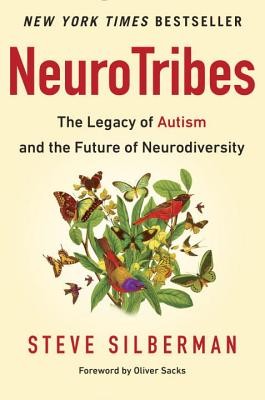Literally Graphic reviewed NeuroTribes by Steve Silberman
Review of 'Neurotribes' on 'Goodreads'
2 stars
A bit of a bummer at times, this book has really helped give me some real reasons to view autism in a more positive light. Probably a bit redudant for people who already have any level of understanding about the history of this diagnosis, I really appreciated all the information in this book - even if it did feel a bit long at times.
In fact, I would really have loved to rate this book even more highly but for two major issue. This book lacks any scientific data (see end notes for update) and it is lacking in everything but the most rudimentary of structures (still an issue). The book dragged on extra long in the middle mostly because I had little to no idea what exactly the author was trying to get at. OK, I was able ot parse out a lot of the positive message he finally …
A bit of a bummer at times, this book has really helped give me some real reasons to view autism in a more positive light. Probably a bit redudant for people who already have any level of understanding about the history of this diagnosis, I really appreciated all the information in this book - even if it did feel a bit long at times.
In fact, I would really have loved to rate this book even more highly but for two major issue. This book lacks any scientific data (see end notes for update) and it is lacking in everything but the most rudimentary of structures (still an issue). The book dragged on extra long in the middle mostly because I had little to no idea what exactly the author was trying to get at. OK, I was able ot parse out a lot of the positive message he finally stated at the very end of the book, but it did not come particularly easy and it ended up making the book feel rather unbalanced. I feel like he did cover other people's opinions that disagreed with him (although this was probably still in a rather biased way), but it was all sort of strung along in long (metaphorical) run on sentence, rather then presented in a coherent way to help people reach their own conclusions.
And despite the fact that most of my recreational nonfiction reading leans heavily in the direction of anecdotal I really felt like at least a few studies or charts should have been referenced at some point in the book. Surely they are out there. Even if the author then chose to speculate about the experiences that have likely fallen outside the purview s of official autism stats, it would have been nice if this book didn't all appear to be based purely on the author's own personal experiences.
I look forward to diving into some more books that cover this subject, especially any I can find written by people who identify as being on the spectrum. I do think this book has helped me understand better then I did, but it could have been so much better.
-Update: As pointed out in the comment below one plus to the physical addition is that it does have endnotes. So, as I suspected all along, Silberman did not pull all of this from thin air. That said, I would have appreciated some of that material being included in the audiobook (often attached as a PDF these days) and it still felt more like foot notes rather then something that helped bring the book to a conclusion. Ah well, such is life.

